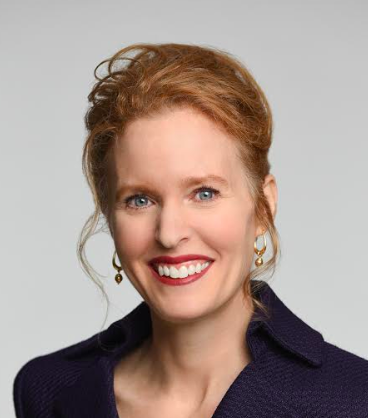
My summer reading has entailed reviewing closely the numerous excellent resilience-finance thought leadership reports written by friends and colleagues, much of it galvanized by the Recommendations of the Task Force on Climate-related Financial Disclosures (TFCD) released in June 2017. I highly recommend these reports as there is lots to learn. Here are some of them:
- Acclimitise for United Nations Environment Program Finance Initiative: Navigating a New Climate: Assessing credit risk and opportunity in a changing climate: Outputs of a working group of 16 banks piloting the TCFD Recommendations PART 2: Physical risks and opportunities July 2018.
- Four Twenty Seven Inc. and Acclimitise for EBRD: Advancing TCFD guidance on physical climate risks and opportunitiesMay 2018.
- Four Twenty Seven Inc. for Deutche Bank: Measuring Physical Climate Risk in Equity Portfolios, November 2017
But, one critical issue key to resilience finance exists that no one is talking about – and it worries me. It’s a discussion of how the finance industry manages assets to ensure the most vulnerable do not become even more helpless due to the physical risks of climate change.
Acclimitise’s prescient 2006 risk pathways figure (published again in the above EBRD piece) illustrates these connections with social performance at the heart of the flow or risks for business.
And the market intelligence research firm Four Twenty Seven, Inc. also has been clear on this point, illuminating how business can support community resilience.
TCFD spells out these four key features of their recommendations:
- Adoptable by all organizations.
- Included in financial filings.
- Designed to solicit decision-useful, forward looking information on financial impacts.
- Strong focus on risks and opportunities related to transition to lower-carbon economy.
I would add one more: It would prove transformative if future TCFD work – and that of the big brains interpreting the guidelines – include “Prioritize lifting more out of poverty into the middle-class market.”
As the groundbreaking “Unbreakable: Building the Resilience of the Poor in the Face of Natural Disasters” by World Bank lead economist Stephane Hallegatte reminds us, “By focusing on aggregate losses—the traditional approach to disaster risk—we restrict our consideration to how disasters affect those wealthy enough to have assets to lose in the first place, and largely ignore the plight of poor people.”
For the optimists among us, it doesn’t seem a heavy lift for TCFD to make social equity a feature of its future recommendations: Arguably, much of the goods and services represented by the dollars moving through the financial markets aim, in fact, to increase people’s well-being in infinite ways; In explaining the financial implications of climate change, TCFD does note there are social and environmental consequences; and it is plausible that Mark Carney, chair of the Financial Stability Board that established TCFD and author of the phrase Tragedy of the Horizon, might have had in mind the tragic consequences that climate change already is creating for the world’s least resourced people.
TCFD’s number one principle for effective disclosures is, “Disclosures should represent relevant information." It’s likely most financiers don’t assume that the jobs left behind as companies move their capital assets and supply chains out of harm’s way are “relevant.” Yet, if that is not relevant to them, then who is it relevant to? Indeed, each of the four TCFD-recommended climate-related financial disclosures elements - governance, strategy, risk management, and metrics and targets – entails features of building or, sadly, dismantling social equity.
Like all whose life’s work relates to solving for climate change risks, I am thrilled not only by the TCFD’s pragmatic approach, but also by the demand it has inspired in the financial markets, segments of which are getting a better handle on their climate risks. There are many actions the market can take. Let me suggest one: In those places where your portfolio is most at risk, ask your risk analysts what will happen to community assets when your portfolio or elements of your value chain move away from the physical risks.
Quantify disbenefits to reputation, workforce, customers and duty to care. Then, consider what an investment in vulnerable communities’ resilience might mean in terms of reputation, workforce and consumer benefits. Do you have the mettle to go beyond the norm and make those investments that build resilience for all rather than avoid risk for some?
Here are three key recommendations to avoid perpetuating a world where particularly vulnerable communities are disinvested in as the market moves from climate change risks:
- TCFD should add social equity considerations to its list of “Key Issues Considered and Areas for Future Work.”
- Economic powerhouses such as Vivid Economics, which weighed in on economic impacts of physical climate change risks in the UNEP-FI report above but did not mention social equity, should crunch some numbers about the market impacts of disproportionate climate risks and compare these human scenario-based outcomes with climate change scenarios.
- All thought leaders in this space should continue to find bridges between questions of social and financial equity. Here’s a start from an article I wrote earlier this year: 6 Steps for Building a “Sweet Spot” Where Social and Financial Equity Meet.
So, how do you recommend we challenge ourselves to make social equity a part of the conversation – and the solution to physical climate change risks?
Image credit of Kiribati: United Nations/Flickr

Joyce Coffee, LEED AP, is founder and President of Climate Resilience Consulting. She is an accomplished organizational strategist and visionary leader with over 25 years of domestic and international experience in the corporate, government and non-profit sectors implementing resilience and sustainability strategies, management systems, performance measurement, partnerships, benchmarking and reporting.














